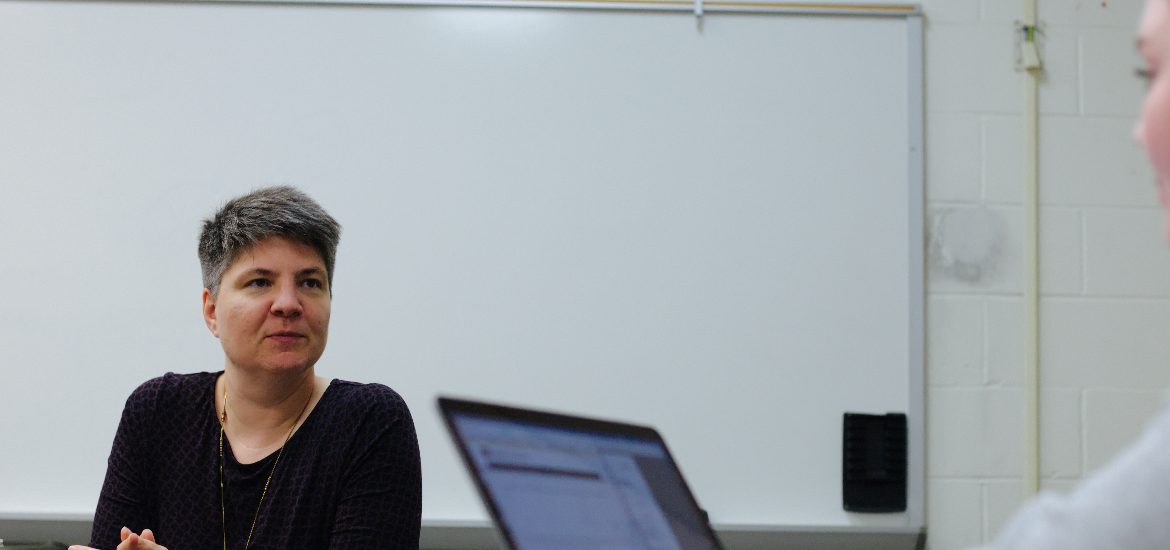Rowan University recently launched a new Master in Public Policy program. Professor Elaine Zundl is one of the professors involved in creating the program and shares with us what students can expect.
How did you become involved with the creation of this program?
My colleagues, including Dr. Lawrence Markowitz, Dr. Katharine Javian, and Dr. Danielle Gougon, worked on the program before I arrived on the scene, spending, probably, two years, maybe more, putting together the curriculum. I think there were many other people at Rowan who supported the development of this program and realized that this was a degree we needed but didn’t have. It’s an innovative program because it is relevant for students who are in environmental science or engineering or other social science majors like sociology. The program is useful to anyone who’s interested in how their work in another discipline can be important for influencing policy development and government stakeholders. Public policy crosses a lot of different domains. That’s the reasoning behind the program.
Faculty from political science, economics, and public policy, as well as members of the New Jersey public policy community lead the courses and discussions.
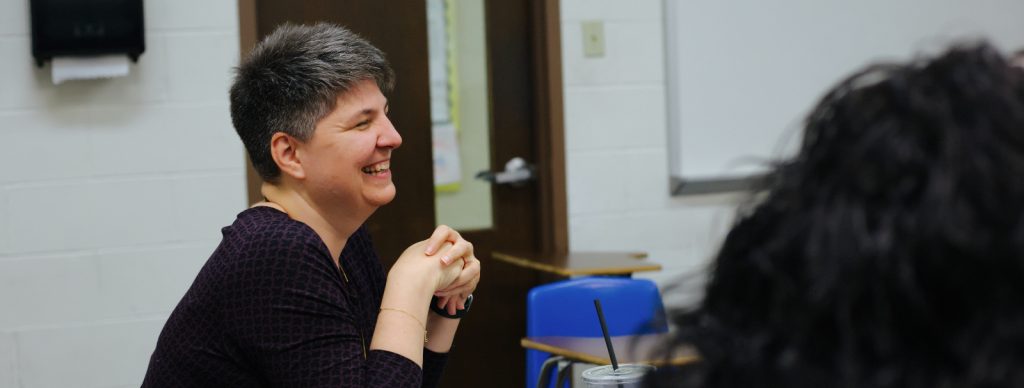
What goals should students set for themselves coming into this program?
Prospective students should have a sense of the policy area on which they would like to focus. They may change their mind over the course of the program but a strong interest in policy and policymaking is key.
When thinking about using a political science degree, many people jump immediately to the idea of law school. What alternative career paths does a Master in Public Policy (MPP) offer?
There are a lot of jobs in the policy world that don’t require you to go to law school. If there’s an issue you are passionate about, you might find yourself being the executive director of a nonprofit, being a policy analyst at a think tank, or working for a lobbyist who’s passionate about changing policy for an organization you care about. Recently our department hosted a panel event with stakeholders who are advocating for making the cannabis industry in New Jersey more equitable. That’s something that anyone could get involved with: writing briefs, influencing how that policy unfolds, organizing community groups. Careers in policy are more diverse than most people realize. Students tend to think, “Well. I’ll work at a government agency or I’ll go to law school,” but there are so many organizations that need someone who understands policy.
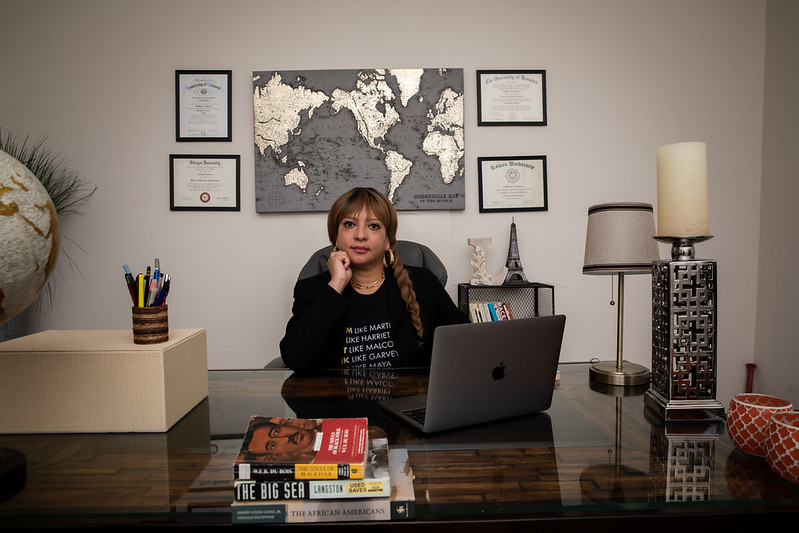
What is the importance of being able to understand the nuances of public policy?
The average person might have taken a college course in government or might remember back to high school when they learned how a bill becomes a law and the checks and balances of our government. But in reality, there are a lot of other things you have to consider when you are trying to change policy or create programs for the public. We call that the policy process. If you really want to be successful, if you want your vision for changing the world to get attention, you need an advanced understanding of how issues get onto the agenda and implemented. We cover research techniques for understanding the impact of a policy, we cover how certain issues end up in front of the public or on the government agenda for a particular session.
What should students entering the program look forward to?
The best part of being in an MPP program is that there are a lot of seminar courses where you get to learn by discussing issues with your peers. In the public policy classroom, it’s not just political science folks, it’s people who study economics, it’s people who are from sociology or diversity & inclusion or work in education. So, discussing one issue or the significance of one policy becomes very exciting because there are so many different viewpoints that you hear and that allows us to learn collaboratively. I think that’s one of the most exciting things about graduate school overall. The students have formed a very tight cohort and they are comfortable reaching out to each other. Most of our students are working professionals with a mix of incoming students who have recently completed their undergraduate degree. They have families or they have other things going on in their lives, but we are a tight community. We all reach out to each other to check in with each other and support each other.
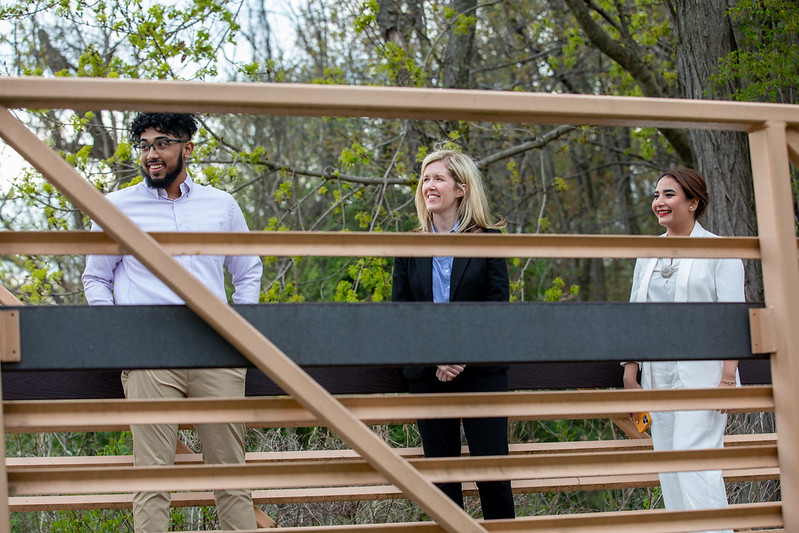
Are there opportunities that will be open to students at the master’s level that may not be available at the undergrad level? If so, what are they?
Internships and research opportunities for MPP students are separate from those offered at the undergraduate level. Typically, these opportunities require students to have more advanced skills than would be expected of undergraduate students. We work with employers and think tanks and legislators to cultivate internship experiences for our masters’ students. Students might also have a chance to work on a faculty member’s ongoing research project. There are also professional development opportunities for students. We hosted the New Jersey Political Science Association Conference at Rowan in Spring 2023 and some of our students attended the membership meeting.
What differences should students be aware of when jumping from an undergrad political science program, or something similar, to a Master of Public Policy?
I would say the most important thing to realize is that undergraduate studies are more directed and closely supervised. You are given assignments and prompts by faculty members, you have smaller assignments and you check in more often with your professor. When you are doing graduate level work, you participate in discussions at seminars and choose the topics for your projects, and you need to take more responsibility for asking for help and checking in with your professor. Sometimes students struggle with that transition, about being more self-directed because it can be a little intimidating. It’s not that we won’t be here to support students; faculty are always helpful, but ultimately you get from the program what you bring to it. You are expected to know what kind of policies you want to study and your faculty member works as a facilitator, in that sense, to help guide you.
One thing that I love about Rowan is that students can take MPP courses in their senior year using “senior privilege.” If students are not sure about a public policy degree or graduate school, this program is a great way to find out. If someone told me I could take a graduate course as a senior and pay undergraduate tuition and get a taste of graduate level work, I would have done it. Even if you decide to go on to do something else, you understand what to expect– it demystifies the whole experience for students. I want to break down barriers for students who might not think of themselves as graduate students.
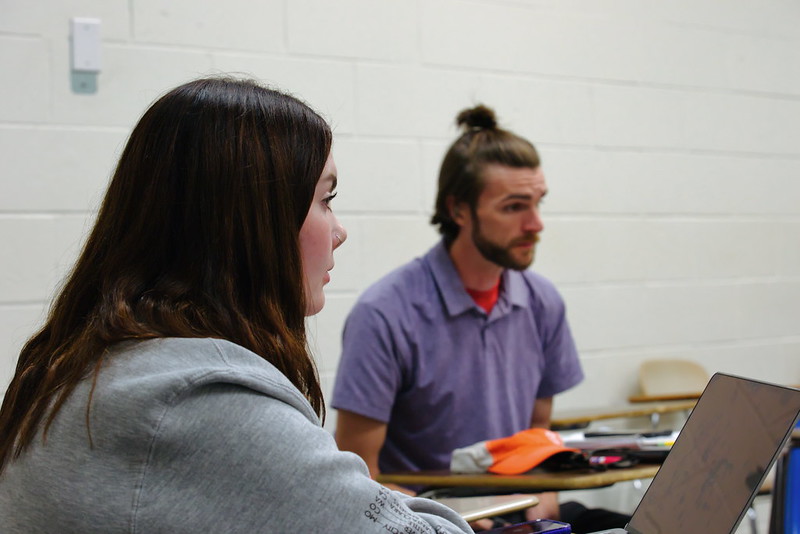
What can students do to prepare themselves for a more rigorous curriculum?
You can always reach out to faculty who teach the courses and ask to see the syllabus or ask to meet with them to discuss the class to see whether the program will meet your goals. I think that’s an excellent first step. A lot of folks come to me and say, “Should I do an MPP? I don’t like what I’m doing now, and this seems interesting.” I try to emphasize that getting a graduate degree is a big commitment, it’s a lot of work. You should be pretty sure that this is something you want to pursue for at least the next 5-10 years. If you don’t have a sense of the policy area or issues you want to focus on, it might make more sense for you to take a few courses in the program before you commit. If students are not ready to enroll in the MPP, our department offers a Certificate of Graduate Study in Public Policy.
There are two ways you can enroll in the MPP program. The first is the CADP, the Combined Advanced Degree Program. That’s where if you’re currently an undergrad at Rowan, you can enroll in this program and take 12 credits in the MPP program while you’re still an undergrad and save money because you’re not paying graduate tuition for those 12 credits. Or you go the traditional route, where you finish your bachelor’s first and then enroll in the MPP program.
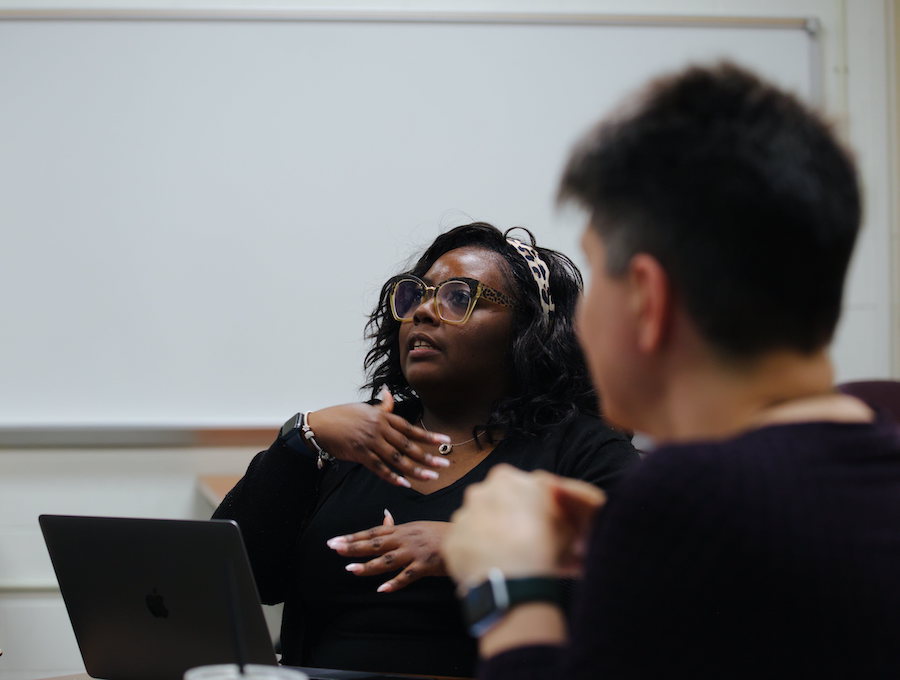
Is there anything else you want to highlight for people to know about the program?
There are many ways to get in touch with us and learn about the program. The best way for people to find out more about the MPP, learn about our current students, and stay up to date on our events, is to follow our Linkedin page. I personally host Master of Public Policy info sessions throughout the year for prospective students. Many of the info sessions are held over Zoom but we tend to have one or two in person as well.
Like what you see?
Story by:
Thomas Ubelhoer, rising junior political science and international studies double major

